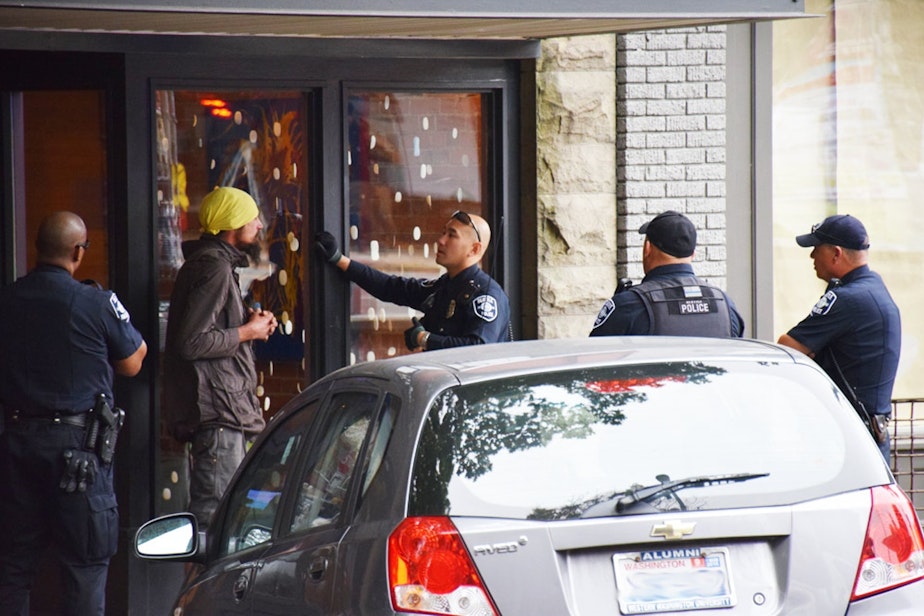Seattle police refer more crisis calls to specialists, hoping to de-escalate

A court-ordered audit has found more people in crisis are calling 911, and officers are increasingly relying on specialized training to do the job.
The audit is part of a series of reports and assessments required under the consent decree between Seattle and the federal Justice Department. In 2012 it was determined that Seattle Police had engaged in a pattern of using excessive force and possible biased policing.
In January, the court found the City of Seattle in “full and effective compliance” with reforms required under that agreement.
For the most recent report, the Justice Department audited, among other things, information from 18 months of crisis calls involving Seattle police, totaling nearly 16,000 calls. The audit determined that use of force was reported in less than 2 percent of the calls.
When force was used, the audit determined in most cases it was low level. When issues around use of force did arise, the audit found the chain of command made appropriate referrals.
In one case the officer was charged with assault. In another an officer was referred for additional training.
Sponsored
Annette L. Hayes, U.S. Attorney for the Western District of Washington, said the audit demonstrates that Seattle Police is in compliance with one of the most important aspects of the consent decree.
“Getting this right is critical to effective and constitutional policing, and it is encouraging that encounters with people experiencing crisis are resulting in very low uses of force and high rates of diversion to services,” Hayes said.
Nearly three-quarters of officers are trained in crisis intervention, but the audit calls for Seattle Police to focus more on de-escalation training and leadership in the field.
Last year crisis calls were up 12 percent and officers referred twice as many people to specialized service providers.




